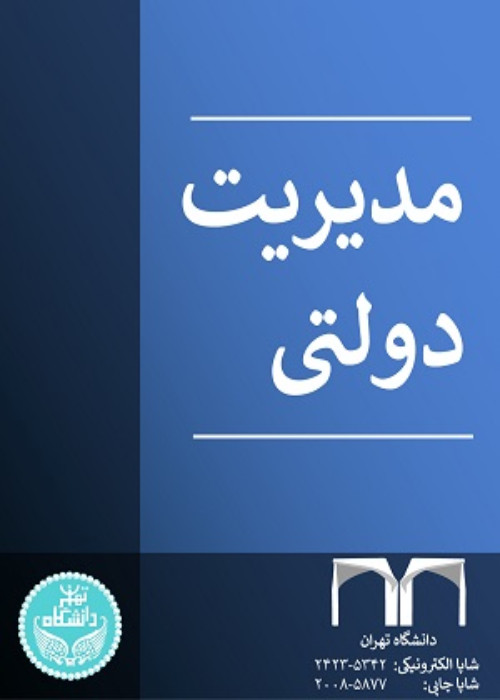Agility in Business Processes Management Based on the Theory of Complex Adaptive Systems
Nowadays, many organizations in the real world have come to the conclusion that the implementation of Business Process Management (BPM) systems has led most of them towards formal structures. In fact, it has reduced their ability to respond effectively and be agile in the face of changes, especially in complex systems, and has even disrupted its implementation. In this regard, the primary aim of this research is to present a framework for agile management of organizational processes by drawing upon concepts from the theory of "Complex Adaptive Systems" within the organization.
To achieve the mentioned objective, the research took the following steps: In the first step, 18 experts were interviewed to identify the effective components in the framework of agile organizational process management. This was done to enhance adaptability and agility within the organizational process management system. In the second step, the Interpretive Structural Modeling (ISM) approach was used to explain the systemic connections of agile organizational process management.
Following the analysis of the interview data and the extraction of primary codes in the first step, the data were categorized into four overarching themes: (1) preparation and basic infrastructure, (2) responsiveness, (3) learning and growth of performance indicators. These themes exhibited a reliability coefficient of 77.7. The subsequent stratification of structural equations and intra-system communication revealed the proposed framework's constituent components. Preparation included factors such as fostering an appropriate culture, process governance, competent human resources, technological infrastructure, and organizational structure. Accountability-related factors encompassed strategy development based on improvisation, creative sustainability, dynamic adaptation, and process leadership. Learning components comprised organizational learning and environmental understanding. Finally, growth and improvement of performance indicators encompassed both quantitative and qualitative metrics. According to the ISM conceptual framework, these variables were organized into four hierarchical levels.
The research findings underscore the critical role of information technology infrastructure in enhancing the agility of business process management. This component emerged as the most vital element and was positioned in the fourth level, signifying independence. Strengthening technological infrastructure can positively influence process-oriented culture, human resources, and organizational structure, thereby promoting a culture of learning, collaboration, and partnership within the organization. This, in turn, lays the groundwork for continuous employee growth and development, ultimately resulting in competitive advantages, profitability, and the creation of societal value, among other outcomes. Within the top-level category (level 4), two components, the ability to devise strategy through improvisation and the capacity to maintain the organization on the edge of chaos (creative sustainability), were identified as dependent variables. These variables are amendable and serve as targets or outcomes within the system. Consequently, an emphasis on the broader system's components may empower organizations to develop these two critical capabilities, enabling them to navigate complex and dynamic environments effectively.
- حق عضویت دریافتی صرف حمایت از نشریات عضو و نگهداری، تکمیل و توسعه مگیران میشود.
- پرداخت حق اشتراک و دانلود مقالات اجازه بازنشر آن در سایر رسانههای چاپی و دیجیتال را به کاربر نمیدهد.


